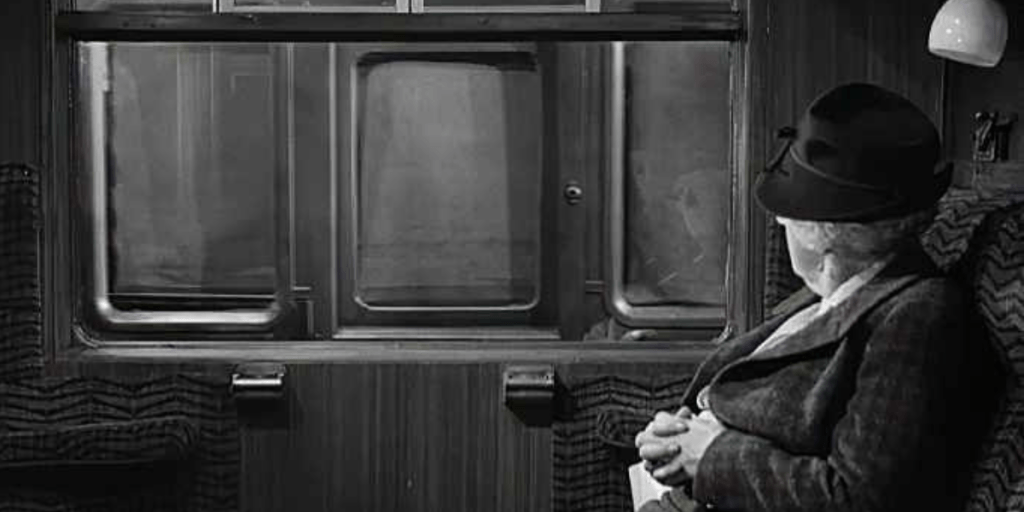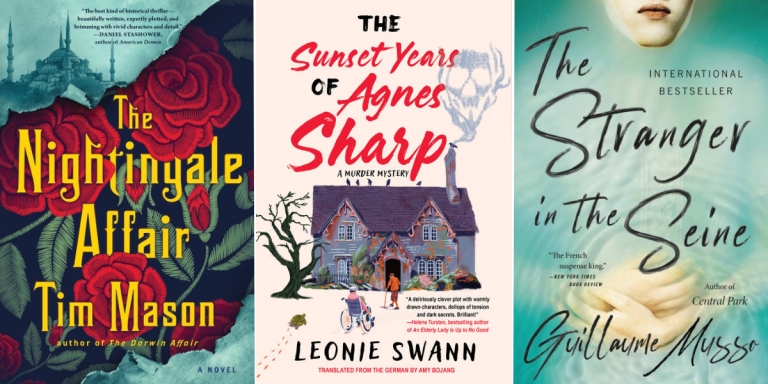Onscreen Spotlight: The Miss Marple of Agatha Christie’s ‘Murder, She Said’

If people today think of Agatha Christie’s Miss Marple as a slightly daft busybody, that’s largely thanks to actress Margaret Rutherford, the first person to portray Miss Marple in film. Although Gracie Fields had appeared as Miss Marple a few years earlier in an episode of American anthology drama Goodyear TV Playhouse, Rutherford was the one to bring Miss Marple to the big screen, with 1961’s Murder, She Said. Although quite a few other actresses have played Miss Marple in subsequent decades, Rutherford set the standard for all of them to follow.
Although Christie reportedly was not a fan of Murder, She Said, it’s still a breezy and entertaining take on her 1957 novel 4.50 From Paddington (published in the U.S. as What Mrs. McGillicuddy Saw!). Director George Pollock and screenwriters David Pursall and Jack Seddon give Miss Marple a more active role than she has in the novel, and while murder is still central to the narrative, the tone is closer to a genial comedy of manners than a dark mystery. At times, the set-up feels like a sitcom, with Miss Marple as the bumbling but lovable protagonist.
Miss Marple winds up in that sitcom scenario thanks to her typical nosiness, plus the dismissal she encounters from male authority figures. The novel’s original British title refers to the train that Miss Marple is riding when she witnesses a murder on an adjacent line. Pollock cleverly constructs the scene as Miss Marple wakes from a nap after reading a detective novel, looks at the next train over and spots a variety of tableaux in the windows of the different cars. Just after she playfully sticks out her tongue at a little girl, she’s shocked to see that in the next compartment, a woman is being strangled by a man wearing black gloves.
Miss Marple immediately reports what she saw to the ticket collector, who expresses his skepticism but agrees to pass along the information to the authorities. When Miss Marple is later visited at home by local policeman Inspector Craddock (Charles Tingwell), though, she’s outraged to learn that he’s dropped the investigation for lack of evidence. None of these confident men take the word of a bothersome old lady seriously, but one of Miss Marple’s most endearing qualities is that she never lets such men stand in her way.
In the novel, Miss Marple’s friend Mrs. McGillicuddy sees the murder on the train, and Miss Marple enlists a local young woman to take a housekeeping job at a nearby estate where the murdered woman’s body may have been hidden. Here, though, Miss Marple herself gets hired — with remarkable ease — as a housekeeper for the wealthy Ackenthorpe family, led by cranky, ailing patriarch Luther (James Robertson Justice).
Once Miss Marple insinuates herself into the Ackenthorpe household, the movie takes a goofier turn, especially in her interactions with Luther’s precocious, ascot-wearing young grandson Alexander (Ronnie Raymond). Miss Marple brazenly snoops around the estate, seemingly unconcerned over the possibility of her ruse being discovered. She remains unflappable even in the face of further murders as she gets closer to the truth.
Despite the obvious danger that Miss Marple would be facing in this situation, Pollock and Rutherford keep the tone light and comical, and there’s never any real sense of peril. Instead, the movie puts together a cast of buffoonish characters for Miss Marple to outwit, within a typically twisty and satisfying Christie mystery. She even gets to be a bit cheeky and flirtatious in her interactions with Inspector Craddock and with her friend Jim Stringer (played by Rutherford’s real-life husband Stringer Davis), a librarian with whom she may share more than an interest in detective novels.
Rutherford and Pollock went on to collaborate on three more Miss Marple movies in the 1960s, firmly establishing the pop-culture perception of Christie’s cozy amateur detective. Murder, She Said may not be the most gripping murder mystery or the most stylish or ambitious Christie adaptation, but it’s as comforting and welcoming as a cup of hot tea on a cold afternoon.
By clicking 'Sign Up,' I acknowledge that I have read and agree to Hachette Book Group’s Privacy Policy and Terms of Use
What to Read Next
Josh Bell is a freelance writer and movie/TV critic based in Las Vegas. He’s the former film editor of Las Vegas Weekly and the former TV comedies guide for About.com. He has written about movies, TV, and pop culture for Vulture, Polygon, CBR, Inverse, Crooked Marquee, and more. With comedian Jason Harris, he co-hosts the podcast Awesome Movie Year.


